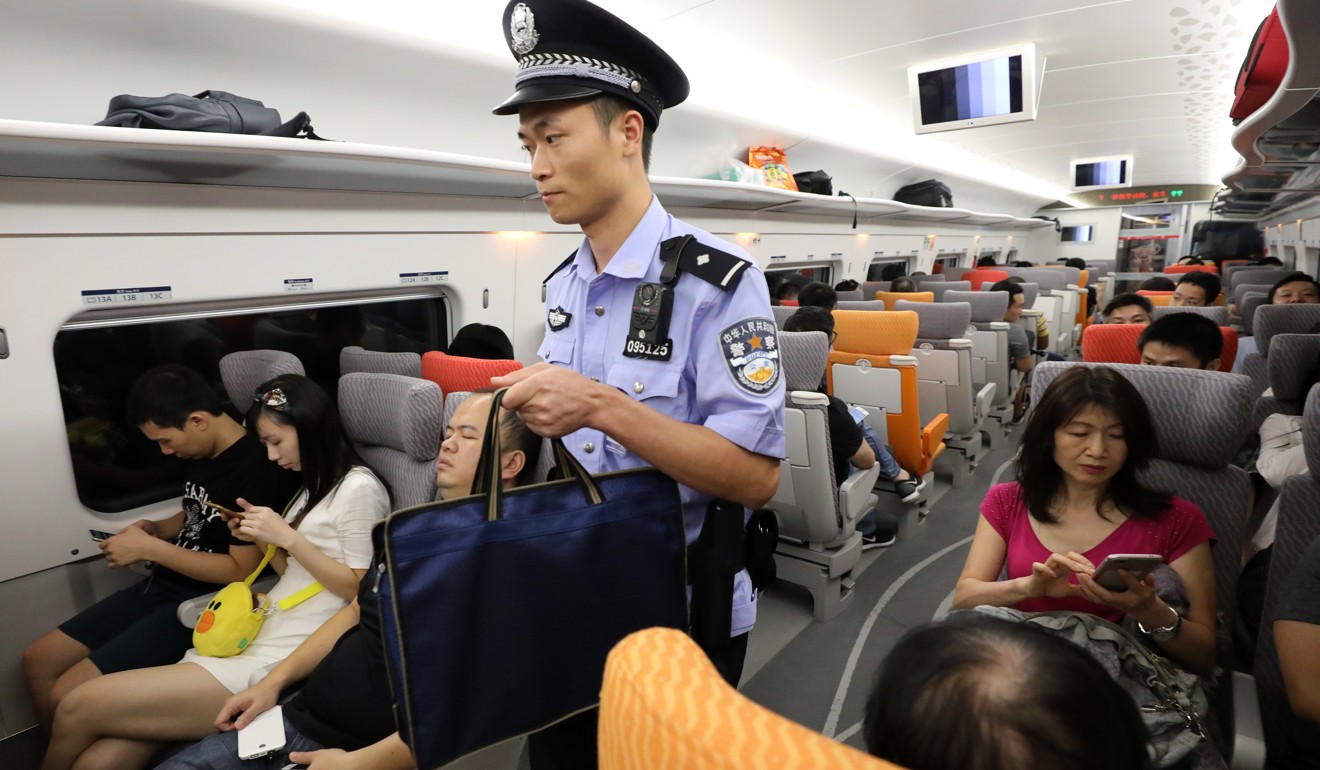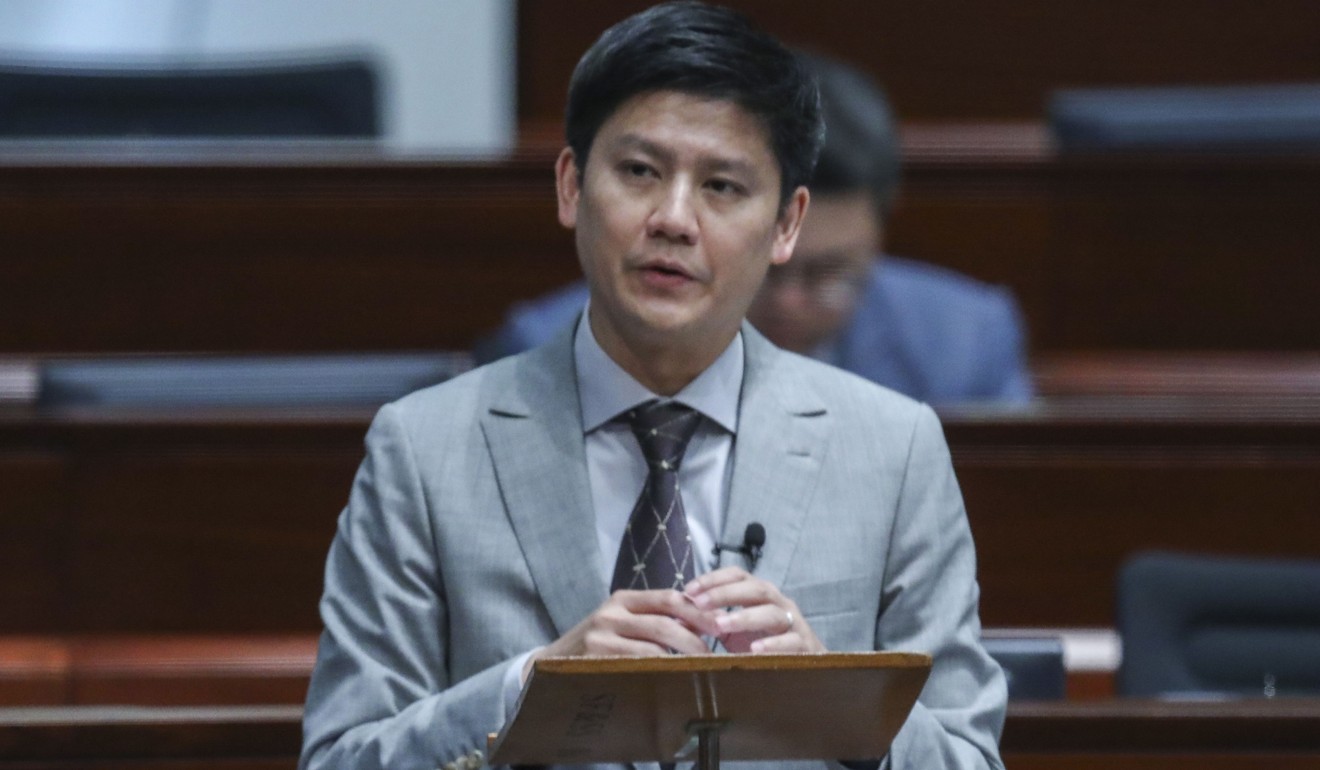
Woman who claims sexual assault in leased section of Hong Kong high-speed rail station told it is a matter for mainland Chinese police
- Railway platform assistant alleges she was attacked in local and national jurisdictions, both times on Hong Kong soil
- But city police only take up the case on their side of the de facto legal border

A woman who said she was indecently assaulted inside mainland Chinese jurisdiction on Hong Kong soil has been told she will have to take up her allegation with police north of the border.
The city’s police and its rail operator have been criticised for their handling of the case – thought to be the first allegation of a crime against a Hongkonger in the leased part of the West Kowloon high-speed rail terminal, where mainland Chinese laws have applied since late last year.
The victim, a 23-year-old platform assistant working for a company contracted by operator the MTR Corporation, approached police at the station on January 4. She said a man had indecently assaulted her inside the station’s Hong Kong area last month, according to a police spokesman.
The spokesman said she further alleged the same man assaulted her on the mainland side, without providing other details.
Hong Kong police arrested a 50-year-old man, who a police source said was the woman’s colleague, in the Hong Kong part of the station the same day. He was released on bail and told to report back next month.
But the spokesman said the other allegation, from the other side of the de facto legal border, would be treated as “crime outside Hong Kong”. The force advised the woman to approach mainland Chinese police.

A spokesman for the MTR Corp, which operates the Hong Kong section of the high-speed line to the mainland, which runs from the station, confirmed the allegation was made.
Under a controversial legal deal – the so-called co-location arrangement – mainland Chinese officials, though on Hong Kong soil, enforce national laws on the line’s trains and in parts of the station.
Lawmaker Jeremy Tam Man-ho, of the Civic Party, said he was angry at the police and the corporation’s handling of the case. He said it disregarded channels for communication with mainland authorities.
“If someone bought weapons on the mainland, came to Hong Kong to commit a robbery and was arrested, would the Hong Kong police not communicate with mainland police to collect evidence and information?
“They would not say, ‘It’s not our business how he got the weapons on the mainland ... and we will not talk to the mainland side’. So why are they doing so in this case?”
Tam’s party colleague Tanya Chan said police should set up a three-way conference with their mainland counterparts and the victim, instead of pushing her to make a report on her own.
“I believe the Security Bureau should provide help,” Chan told a radio programme on Tuesday morning.
Priscilla Leung Mei-fun, a pro-government legislator and member of the Basic Law Committee, which advises Beijing on the city’s mini-constitution, said a support centre with officials from both Hong Kong and the mainland should be set up in the terminal for preliminary inquiries in such cases.

Speaking on the same programme as Chan, she agreed the Security Bureau should “definitely” facilitate such cooperation.
“People are more likely to complain about the [co-location] system when there is no sufficient support for them as helpless victims,” Leung said.
In a booklet published in August, the Hong Kong government said emergency calls made anywhere in the terminal would be directed to Hong Kong police, and a three-party conference call would be arranged if the case reported involved incidents in the mainland port area.
A police spokesman said officers can only enter the mainland area if mainland authorities request they do so.
“Hong Kong Police have no jurisdiction or authority to enter the mainland port area for investigation of such cases,” the spokesman added.
But Chan added that, as an employee of the MTR Corp, the victim’s rights to a safe workplace would still be protected by Hong Kong labour laws, which remained under the city’s purview under the co-location arrangement.
“Hong Kong’s laws still apply to the [six] reserved matters in the mainland port area, which mostly concern civil rights, including employment-related obligations,” Chan said.
She suggested the victim make a report to the city’s equality watchdog, the Equal Opportunities Commission, and pursue her employer for failing to protect her safety and welfare at work.
An EOC spokesman said: “It is unlawful for a person to sexually harass his or her colleagues at an establishment in Hong Kong, even if the act takes place outside Hong Kong.”
The MTR Corp, as the employer, may be liable for any sexual harassment committed by employees, unless it can show it took practicable steps to prevent such cases, the spokesman added.
The case was the third law-enforcement issue at the terminal reported since it opened.
Mainland authorities have reportedly taken away at least two travellers, including a Hong Kong resident, from the station since the cross-border express rail came into operation in September.